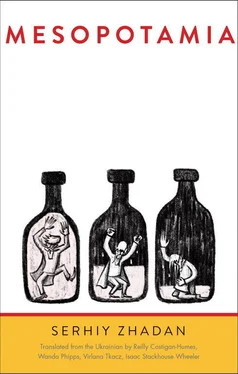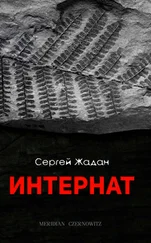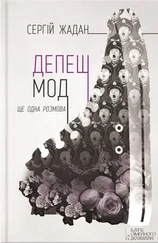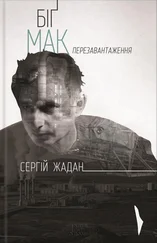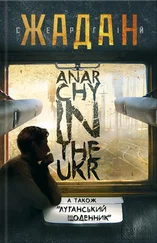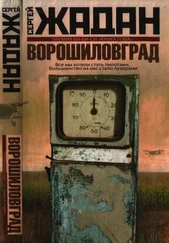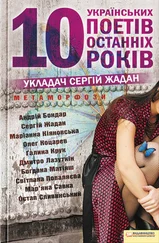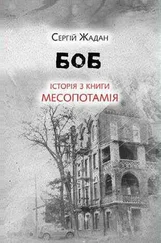He descended into the valley and then started climbing back out, feeling the city coming closer as he walked, and its breath becoming more and more palpable as its glow grew more and more intense up ahead of him. Trucks rolled out of the night, delivering fresh vegetables, frozen pig carcasses, grain, cotton, and contraband medicine to markets and warehouses. Some of the tankers had fresh milk sloshing around in their innards, some had stolen oil, some hid slaves being transported from market to market, singing their sorrowful songs, wondering who would buy them and where they’d ultimately end up. An endless stream of train cars loaded with fish and timber rolled down the tracks, and sleepy passengers peered out the windows, watching the sun flooding the grass of the outskirts with red flames. Barges filled with coal and ships with armed crews glided inaudibly up the rivers, trying to slip through the morning fog to the city’s docks. The sun was poking through the fog, and the city swelled with light, voices, and sounds, rousing people from their slumber and releasing images from their dreams. The city lay up in the hills, flanked by rivers on two sides. Down in the valley stood the first of the houses where the workers lived and the schools where their children went, loomed the dark walls of the hospitals where the lepers were, glowed the white limestone walls of the prisons where they kept the thieves and lunatics. Beyond that were the great factory buildings where they made tanks and tractors, unrecognized churches, which it was forbidden to build in the upper neighborhoods, the black landing strips and the opium fields of the nunneries sprawled out before Oleh. Beyond the airport began the fences of bread factories and meat-packing plants that woke up in the dark to feed the residents of the city, followed by the gallows where they would hang local witches; the large hardware store was visible behind them, and in one of the hangars, hidden away from the security guards, pilgrims who had come from down south—the Donbas and Crimea—to venerate the icons of the city’s ancient cathedrals slept on the concrete floor with pieces of cardboard underneath them. A bit farther along were red-brick houses with satellite dishes and secret wards that drove off swindlers and Gypsies. It was mostly people who worked at the markets and train stations that lived in those houses; in the morning, they’d set off for work, their boisterous children running after them, carrying backpacks full of hymnals and algebra homework. The women would stay home and take care of the housework, washing, sewing, making brews that cured the sick and kept men faithful, and pulling food out of their pantries and fridges—red peppers, green suns of cabbage, and yellow cheeses that looked like ripe moons. Smoke from factories and the fires where people warmed asphalt and boiled clean the clothing of the consumptive rose over the roofs of their buildings, and trolleys packed with factory workers, villagers, and couriers rolled past linden and poplar trees, goading along their fuzz that simply wouldn’t settle on the ground, sending it fluttering up above the city’s squares.
The old neighborhoods faced one of the two rivers, its smooth, level bank overgrown with cattails, where anglers hid, lying in wait for precious fish that were foolish enough to burrow into the silt of its shallows, where they shone like stolen silver dishes. The area around the bridges was mostly inhabited by alms-seekers who had set up camp in the old typography offices and pharmaceutical warehouses, prostitutes who rented cheap rooms at the dorms run by the railroad institute, jewelry dealers and Sophers who were hesitant to live in the residential area down by the river, so they raised large families in the Stalin-era apartment buildings along one of the main avenues. Sickly and childless women, homeless men, and unemployed teenagers peered at the city from the riverbank. Children tossed dead birds into the water, where they would float with the current, terrifying those living in the cottages that stretched along the left bank, behind the industrial area and the cemetery for prisoners of war.
A fortress wall, heavy and impenetrable, ran along the right bank, propping up the hills and keeping the city from expanding any farther. The customs office was behind the bridge—city guards in gilded armor and traffic cops wielding striped sticks stopped cars and trucks as they tried to pass through the city gates, checked their goods, and searched their trunks and the travelers’ suitcases, looking for undeclared emporia and banned literature. The travelers were checked for syphilis and the plague, and the more suspicious of them were detained and quarantined at the gray barracks the Red Cross had set up by the bus station. The mornings were the busiest time for those officers; they had to catch merchants trying to worm their way into the Old City through underground passageways or stow away on metro cars, and sizable cohorts of sailors who avoided paying any tariffs or declaring any of their cold steel weapons who ascended the surrounding hills by dark footpaths that wound through the gardens and vacant lots behind the Polytechnic Institute. The travelers and men of trade who paid their taxes in full were admitted to the city and either climbed up the cracked cobblestone road, or the new asphalt one the government had recently laid, to the upper neighborhoods, where there was more sun but less greenery. Banks and stores, 24-hour kiosks where you could always get a pack of cigarettes and 24-hour pharmacies where you could always get your particular drug cocktail lined narrow streets packed with advertisements and automobiles. Flashy dresses and jewelry burned pink and green in display cases, serving men carried heavy water jugs out of the stores, rushing to bring them to local kitchens, where cooks were lighting their ovens to prepare exquisite Italian and Arabian dishes for the heads of their households. Restaurants and coffee shops were welcoming their first patrons—those who’d arrived from other cities that morning or hadn’t had the time to grab a bite to eat after a night on the town, or those who lived in hotels and nightclubs for weeks on end and just wanted to be around people, so they followed the alluring morning smell of cognac. Students gathered in cheap cafeterias, spilling beer all over their lecture notes, taking out hunting knives and vowing to gut deans and professors, catching up on the latest news, and reading protest poems aloud. Businessmen were sitting in expensive restaurants and closing deals, pricking their fingers and signing contracts in blood. The women standing on the streets smelled like sleep and love; the children were running to school, re-creating the magnificent stories they’d seen in their dreams the night before. Their screams soared up into the sky and disturbed the trembling currents of air—they froze and changed direction.
Up high with the rising morning air, among the solar fires and poplar clouds, there were enough churches, mosques, and synagogues to hold all the city’s residents if danger were to strike, monuments to poets and university founders, sprawling parks where birds and beasts brought from Asia and South America roamed free, and theaters, palaces, the hall of burgesses, the municipal government building, and the main department store, all stacked on top of each other. In the mornings, street sweepers washed the steps leading up to monuments and concert halls, traffic cops despairingly stopped bicyclists who flew out into the main square, scattering flocks of pigeons and red, squawking parrots, and eminent professors and councilmen headed to their offices to attend to the city’s needs, protect it against unnecessary fiscal risks and other threats to civilization. The city fathers walked out onto the high tops of their towers, surveying their neighborhoods, swollen with sundust, catching the nearly imperceptible smell of the river flowing from the south, gazing at the surface of the northern river glistening like an airplane’s wing, listening to the birds circling over them, and lifting their heads to the heavens to ask the saints for mercy and intercession. The saints stood there in the blue, invisible space beyond the currents of wind and pockets of turbulence, feeding the birds of the air straight from their hands, listening to the voices down below; they were giving the city fathers an answer, and it went a little something like this:
Читать дальше
